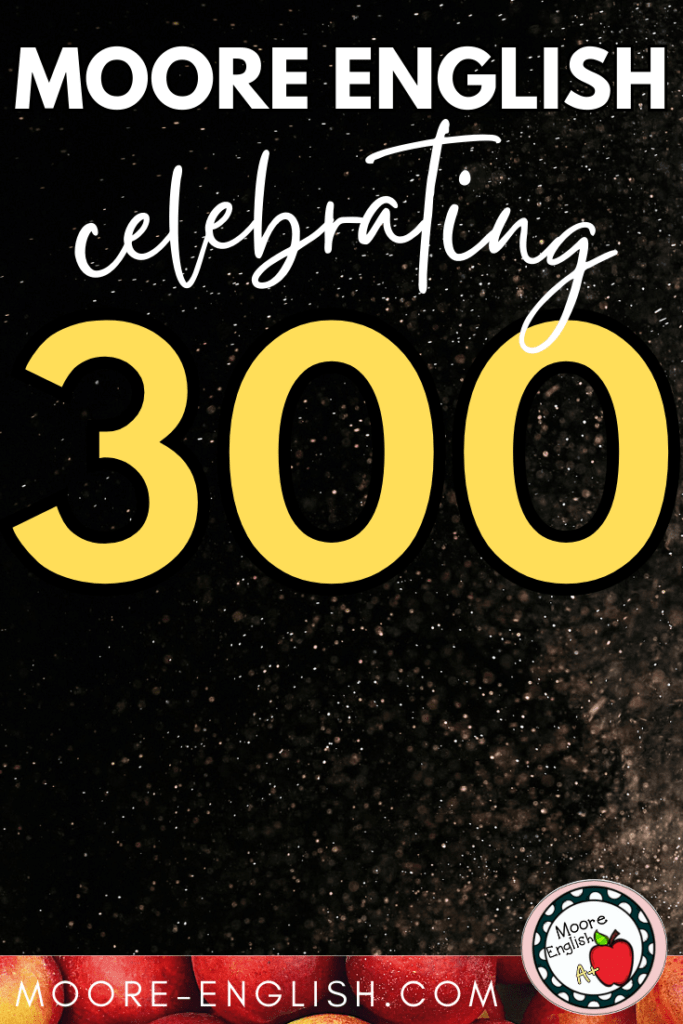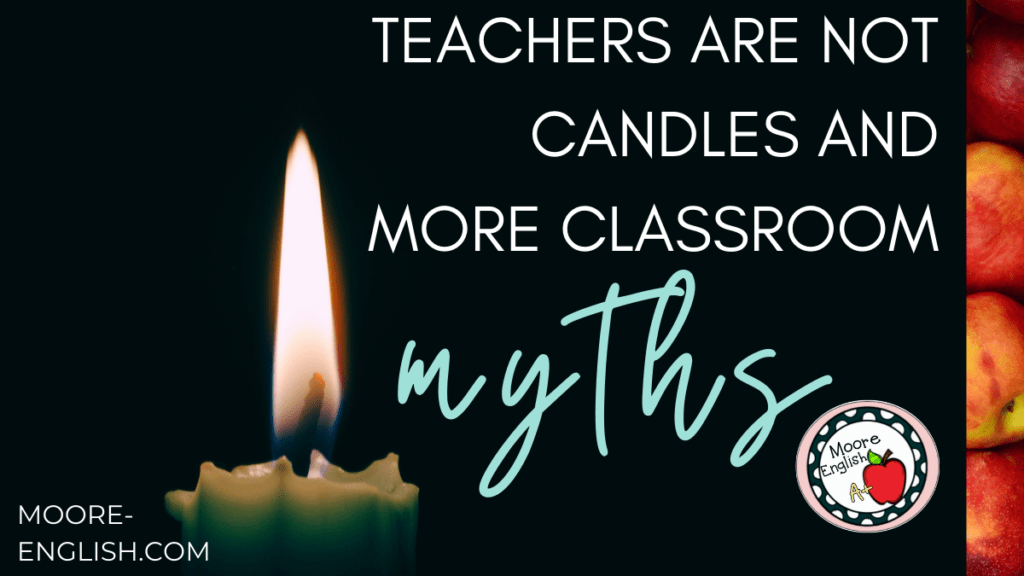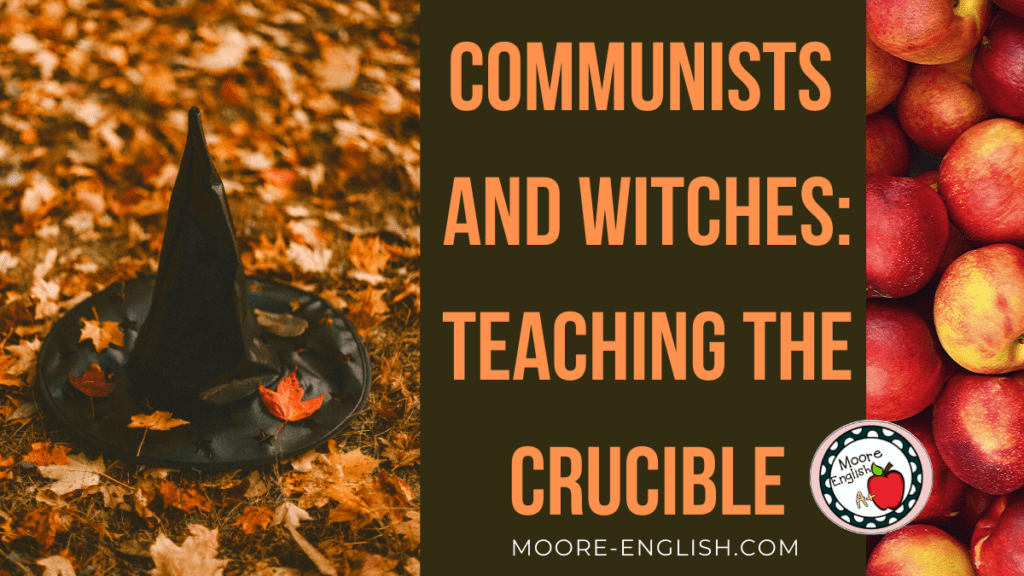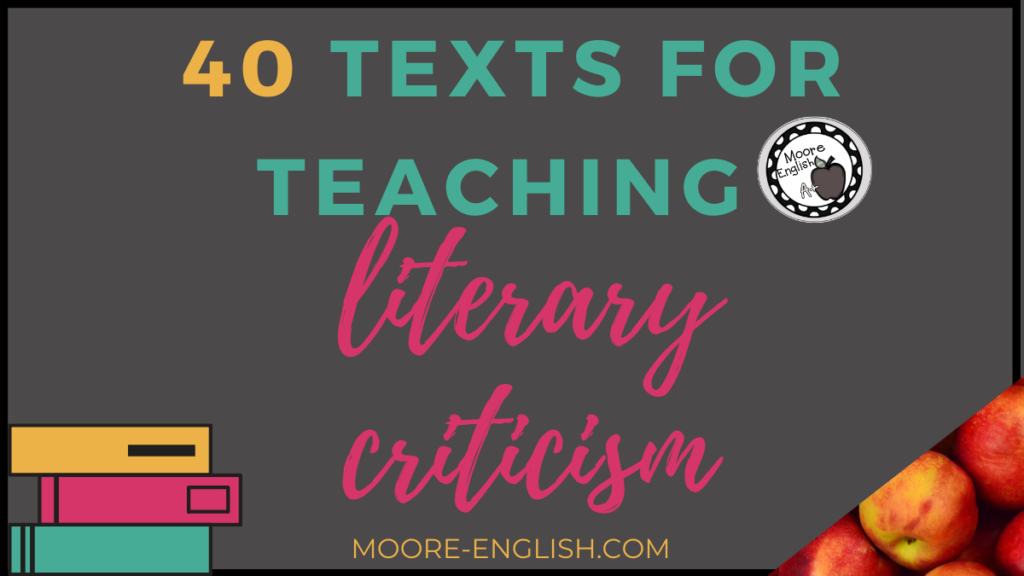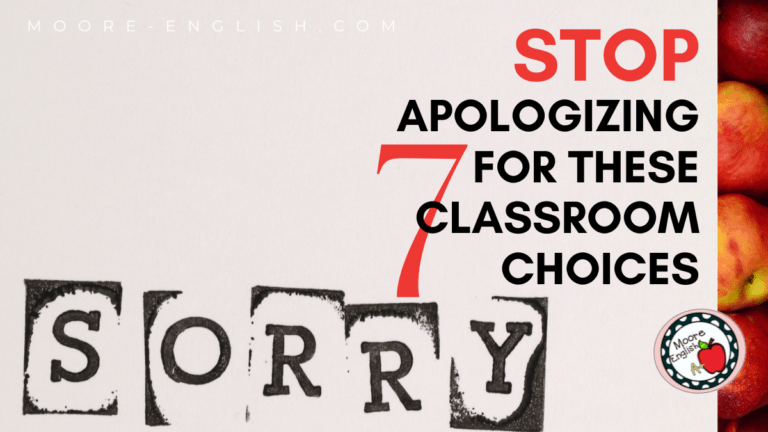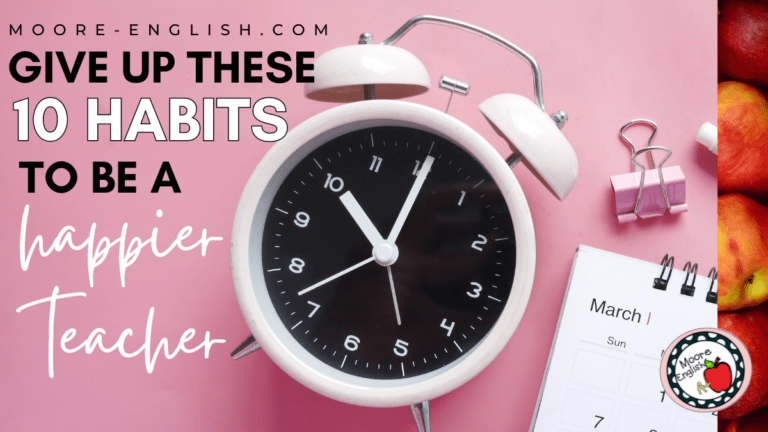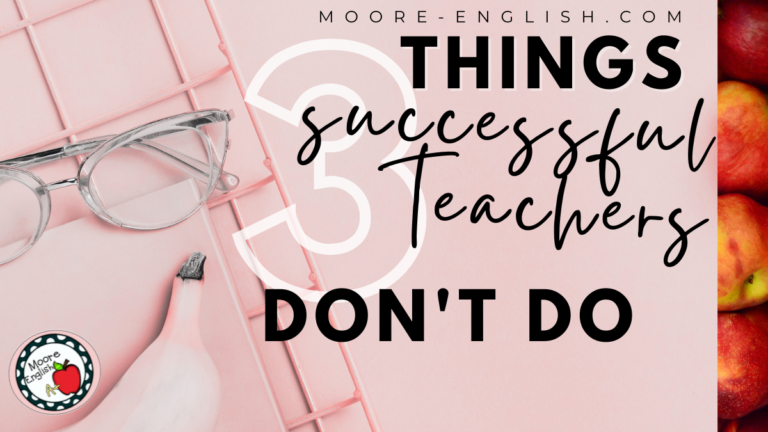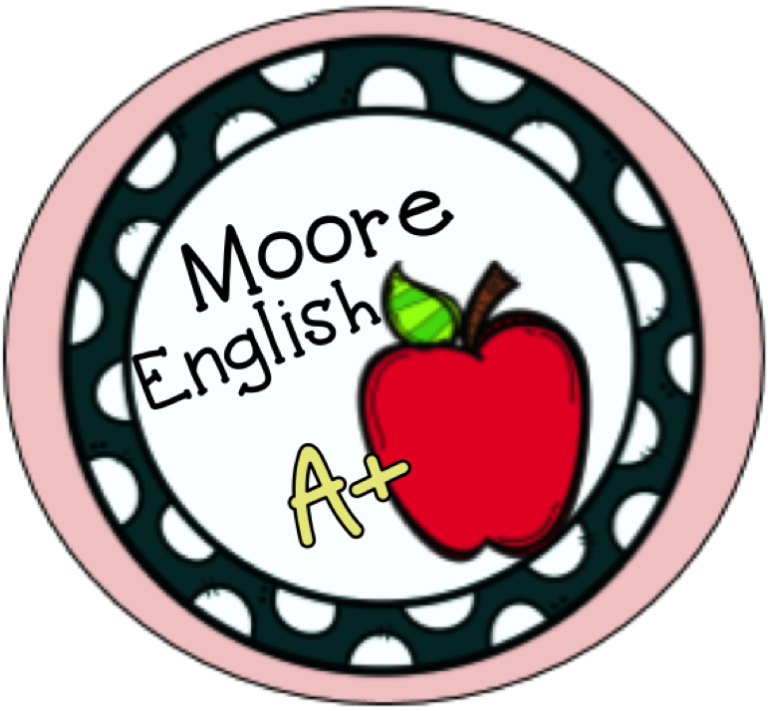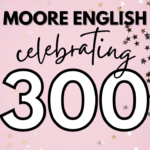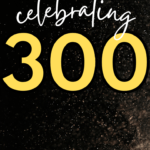When I started Moore English, never did I think I would be celebrating 300 posts! I don’t know if other teacher bloggers celebrate milestones like this, but celebrating 300 posts is a big deal for me.
Along the way, there have been bumps, bruises, and blunders. But there have also been breakthroughs, key conversations, and a lot of self-reflection.
Celebrating 300 posts is not the first Moore English milestone. As I put this post together, I revisited celebrations of 100 posts, 200 posts, and 5 years. I also revisited my first ever blog post. While it is a kind of precious first post, it also reminds me of how far I’ve come.
Today, I wanted to share 5 of my most-popular posts and 5 posts that make me proud.
This post this post may contain affiliate links. Please read the Terms of Use.
Celebrating 300 with Pride
While each blog post has a special place in my heart, these 5 posts bring me a certain amount of pride. These are posts that challenged me, provoked strong responses, and made me dig deep.
I’m not great at keeping an eye on the metrics and statistics that go along with maintaining a blog or an email list. (I mean, there’s a reason I teach ELA and not algebra.) By chance, I was doing some maintenance on my email list when this unsubscribe caught my attention.

On one hand, it ruffled my feathers a little. On the other hand, it brings me a certain amount of pride to be producing content that pushes buttons. While I don’t set out to offend readers, I don’t ever want to shy away from sharing hard truths, especially related to social justice.
With that in mind, I’m celebrating 300 posts by sharing these 5 that bring me tremendous pride. #1 matches the unsubscribe comment above.
#2 is the post that receives the most hate. I can’t even post the unsubscribe comments here because they’re too hateful.
Professionalism: 1 Topic I’m No Longer Teaching in HS ELA
Recently, I wrote about finishing my Ed.D. In one of the last classes, we were asked to write a reflective paper about professionalism. In this context, we were writing a paper about communication standards, the use of formal language, tone policing, etc. We were not writing about building healthy boundaries or sustainable teaching practices. Writing
15 LGBTQ+ Titles To Make Your Classroom Library More Inclusive
Since June is Pride Month, I wanted to put together a list of LGBTQ+ titles to add to your classroom library! One of my goals in the coming school year is to better cultivate and organize my classroom library, so I thought it would be fun to share some of the books I’ve already added
3 Pros and Cons Of Pursuing an Ed.D
I have spent the last two years pursuing my Ed.D in K-12 leadership. Some people are athletic, some have an ear for languages, some are musical. I am none of those things, but I am an excellent student. I’m writing this post about a month before graduation. I am at the end of the program,
3 Toxic Trends in Teaching and How to Stop Them for Good
Over the years, I’ve seen the good, bad, ugly, and wonderful parts of education. However, these toxic trends in teaching are among the most pernicious and problematic. As I was putting together this list, I looked for a few criteria: Toxic Trends in Teaching #1: Prophecy I decided to write this post after several different
Why Teachers Aren’t Candles and More Common Classroom Myths
Every so often, a quote appears on my Pinterest home feed: “A good teacher is like a candle – it consumes itself to light the way for others.”* Each time I see this quote, I gnash my teeth because these supposed “words of wisdom” feed the notion that teachers are martyrs. Furthermore, this quote reinforces
Celebrating 300: The Most Popular Posts
When I sit down to plan my blog posts, I usually plan in 1-2 month chunks. This gives me time to collect resources and graphics without stress.
When I decide what to write about, I mostly write about what’s on my mind, what resources I’m gathering, what resources I wished I’d had as a new teacher. Occasionally I’m inspired by an email or inquiry, by a current event, or by a developing trend.
Blog whisperers and SEO mavens will tell you to only write for your audience. Only write to solve their problems. That’s sound advice, and I’ve done that from time to time. However, as I reflect on the 5 most popular posts from the last year, I’m struck by how many of the most popular posts came from writing from a place of need. In other words, I wrote a post I needed (whether in that moment or in my younger and more vulnerable years) that also resonated with readers.
For example, when you look at the list of most-popular posts, the frequency of literary criticism says a lot about what kinds of accessible resources resonate with readers.
6 Texts for Introducing Biographical Criticism
When introducing literary criticism, biographical criticism is often where I begin. Over the years, students have often engaged in biographical criticism without knowing its name. For example, this year, one of my students read the graphic novel Dragon Hoops, which draws heavily on its author’s life experiences. During his Book Cover Design presentation, the student
12 Texts for Introducing Marxist Criticism
When my students study literary criticism, I usually introduce Marxist criticism after feminist criticism. In part, I introduce these two lenses in close order because they are both political lenses. They’re not political in the sense of partisan politics. But they both deal with how literature navigates issues of power and privilege. However, I usually
How to Get Students Excited About William Shakespeare’s Macbeth
Macbeth was the first Shakespeare play I ever taught, and it helped me appreciate how much fun your students can have while acting out a drama in the classroom! Here are some of my favorite activities and lessons to use with William Shakespeare’s Macbeth. Getting Started with Macbeth As with any unit, getting students excited is
Communists and Witches: Teaching The Crucible
My juniors are getting ready to start The Crucible this week, and I am so excited! Arthur Miller’s play is a great way to teach allegory, tone, and speaking and listening skills. It’s also a fun way to end the semester. Here are some of my best strategies and tools for teaching The Crucible: Before
40 Texts for Teaching Literary Criticism
This week, my juniors will make their first foray into literary criticism. In the past, I’ve written about the importance of incorporating literary criticism in secondary English. Today, I’ll share texts that are perfect for introducing literary criticism. As you choose texts for introducing literary criticism, remember that the goal of the lesson. While you
Celebrating 300: 5 Most Popular Resources
Of course, Moore English is an extension of my TPT store. Sometimes there’s a clear connection between the blog and TPT success, but other times the connection is less clear. Either way, I wouldn’t be telling the complete story of Moore English if I didn’t also showcase the 5 most-popular resources:
- What is McCarthyism? And How Did it Happen? Listening Guide
- 4 Tools for Teaching “The Danger of a Single Story”
- Syllabus Scavenger Hunt
- 7 Literary Analysis Stations
- Introducing Literary Criticism

